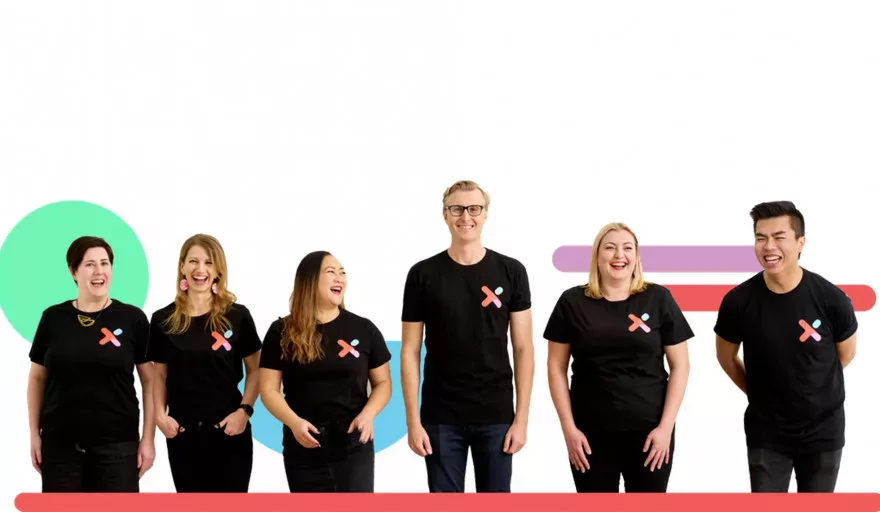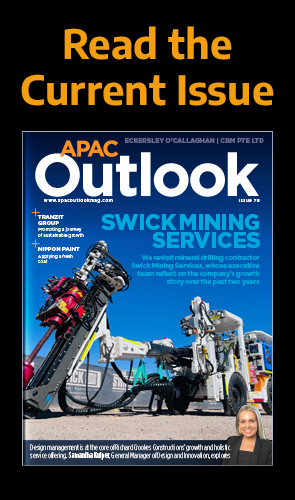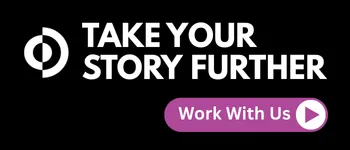Jeanette Cheah, Founder and CEO of EdTech platform HEX, shares her inspiring view on the need for the next generation of diverse leaders.
- THE CHANGING FACE OF FUTURE LEADERSHIP
- QANDA WITH JEANETTE CHEAH, CEO, HEX
- Could you briefly introduce us to HEX and your company’s mission? What led you to founding the company?
- How does your platform seek to empower the next generation of female entrepreneurs in particular?
- Having established your own successful company, could you tell us a bit about your personal experience as an entrepreneur as both a woman and an ethnic minority? Has it been a challenging journey?
- Do you believe that there is more progress to be made in terms of diversity and gender representation across industries in the APAC region – particularly within tech?
- Finally, what does the future face of leadership look like to you?
THE CHANGING FACE OF FUTURE LEADERSHIP
Voted by the Asian-Australian Leadership Summit as one of the ‘40 Under 40 Most Influential Asian-Australians’, Jeanette Cheah is a voice to be reckoned with. As Founder and CEO of EdTech platform HEX (Hacker’s Exchange), Cheah is committed to unlocking the talent of future leaders in tech, education, STEM, government and business, and encouraging them to step up regardless of background. Leveraging innovation to unlock future entrepreneurs, HEX is designing the future of education, with diverse leadership at the fore.
We catch up with Cheah to reflect on her personal experience on the entrepreneurial ladder and unpack the importance of diverse leadership, as being ‘the only one at the table’ slowly becomes a thing of the past.
QANDA WITH JEANETTE CHEAH, CEO, HEX
Could you briefly introduce us to HEX and your company’s mission? What led you to founding the company?
Jeanette Cheah, CEO (JC): HEX is an education technology company based in Australia that operates around the world. Our mission is all about increasing the exponential intelligence of the global workforce. We see a world where people don’t just train for job titles, but to increase their capabilities and their potential to be great contributors to the future economy.
I founded the company after a 14-year career in corporate Australia – I looked around and realised that the people in charge were fairly homogenous – they all kind of looked the same, with a lot of people that had been around for a long time, particularly at the top level of business government and tech. I believe that there is an opportunity to create a world where the leaders of tech businesses and government look like the world that they actually serve.
So, I founded HEX which was originally a study abroad company where we would fly students to places like Silicone Valley and Singapore to teach them about innovation. We then pivoted to delivering the innovation gap year which is essentially a programme that is backed by universities around the world, and it gives people what I call the ABCs of the future economy. We teach students tech literacy and fluency, leadership communication and values, business models and financial literacy, as well as futurist thinking and entrepreneurship skills. Together, that training really sets people up for success in the future.
“I believe that there is an opportunity to create a world where the leaders of tech businesses and government look like the world that they actually serve”
Jeanette Cheah, CEO, HEX
How does your platform seek to empower the next generation of female entrepreneurs in particular?
JC: Personally, I’m incredibly passionate about seeing women thrive in entrepreneurship because I believe that we are going to create solutions to problems that only we know about. We’re 50 percent of the population and we experience certain kinds of issues and problems that aren’t well-served.
For example, even something as simple as the seatbelt was designed for the male body, not for women, and we can’t have that kind of thing happen in the future when we’re designing so much exciting technology – I would love for women to be represented in that space.
We seek to empower the next generation in a few different ways. One is to ensure that we put people on stage and on the programme who are diverse – we want students to find role models in their mentors and in their speakers.
For example, why can’t we put a great female venture capitalist in front of students? We’re currently at about 47 percent of the people that either go on stage or are our mentors are women, so role modelling is extremely important to us.
I think it’s important to make sure that everyone who’s going through our programmes has a baseline understanding of working with diverse teams. It’s about using the opportunity to educate and empower all of the people that come through our courses about the concept of diverse and inclusive leadership, and the benefits of that.
We start those conversations in a way that is inclusive and invites curiosity, rather than telling people what to do. The more we can do that, the more likely we can start to dismantle these structures through the next generation of leaders.
Having established your own successful company, could you tell us a bit about your personal experience as an entrepreneur as both a woman and an ethnic minority? Has it been a challenging journey?
JC: I’m a first-generation migrant to Australia born to Chinese Malaysian parents. I was born in Honolulu, US, before going to school in Japan, then working in Australia. It has been a challenging journey, but everyone has their challenges in different ways. If you’ve ever been that person when you look around the room and you’re the only ‘type’ of you there – it’s rarely a fun feeling. Whether you’re the only woman, or person of colour – you do notice it, and it’s something that unless you’ve been in those shoes – regardless of your background – it’s an uncomfortable feeling and can make you question yourself.
I subscribe to the Mindy Kaling psychology of walking into a room with the confidence of a six-foot tall white dude from a middle-class family, channelling that feeling of ‘I belong here’! I have to constantly remind myself that reflecting on your achievements and what you’ve accomplished actually isn’t bragging, it’s just sharing reality. It’s important to get comfortable with reflecting on your wins. For anyone who is doubting themselves on that journey, because maybe you’re in the minority or you’ve been socialised to be a bit more quiet or subservient, that’s the advice I would give.
The other thing about coming from a migrant or ethnic minority background, is how that can sometimes carry a family pressure to be a high achiever, introducing a perfectionist mindset. As an entrepreneur, and somebody who’s running teams in changing environments, you’re never going to be perfect! Things are always going to change, so being able to challenge yourself to not be perfect, but to be responsive to your environment and keep looking ahead – that’s far better than getting things right all the time.
Do you believe that there is more progress to be made in terms of diversity and gender representation across industries in the APAC region – particularly within tech?
JC: I do – we know that women founders still only receive less than five percent of the venture capital funding that’s available, which I see as a wasted opportunity from the perspective of investors. I think people that don’t invest in diverse teams are losing out on great experience design and great solution design, while people that don’t invest in diverse founders are missing out on economic benefits, since there is research to say that diverse leadership achieves better financial results across the board.
Finally, what does the future face of leadership look like to you?
JC: It looks like the world that I live in. Changing the face of leadership is everybody’s job – existing leaders can make those decisions based on who they hire or promote, how you treat people and develop your culture. If you’re an emerging leader, you have lots of power and it’s time to be seen sooner than you might be comfortable with. Always push to the place of discomfort, since we need those future leaders to step up sooner.



































